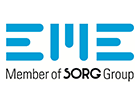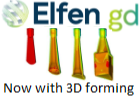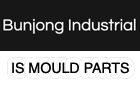Ardagh Group’s Germersheim glass production facility in south west Germany has been the subject of a substantial investment in recent months.
One of the facility’s two melting furnaces has been completely rebuilt.
As part of the associated production shop investment projects, some of the glass container industry’s most advanced manufacturing technologies have been purchased.
This includes specialist production machinery from Heye International, one of the facility’s longstanding partners.
Germersheim near Speyer employs 280 people. It is one of eight plants operated by Ardagh in Germany.
A 150 day repair schedule was undertaken to make production more efficient and environmentally-friendly, preparing the Germersheim glassworks for continued operation in the future.
As well as renewing the green furnace, the batch plant was upgraded and new NNPB production equipment installed.
An annealing lehr has been replaced, as well as the basement cullet return system, while existing supply facilities for compressed air, gas, water and electricity were either rebuilt or overhauled.
The rebuilt regenerative melting furnace serves four production lines, two of which have been equipped with the latest SpeedLine IS machines from Heye International. This equipment includes the Multilevel security concept. It is designed to comply with HACCP standards and employs a modular design for simplified maintenance and service.
The use of standardised components reduces the number of spare parts required, while existing machine mechanisms are also reusable.
One of the new IS machines is a 12-section 6 1/4in double gob installation, while the second is a 10-section 5in double gob SpeedLine. The production shop’s other two lines feature existing Heye IS machines. The feeders for these lines have been modernised with the latest Heye front plates and spout casings.
Stefan Döring, Technical Service Manager for the Germersheim facility, said:. “There was a very good co-operation with respect to pre-works engineering, FAT organisation, machine installation and commissioning.”


























